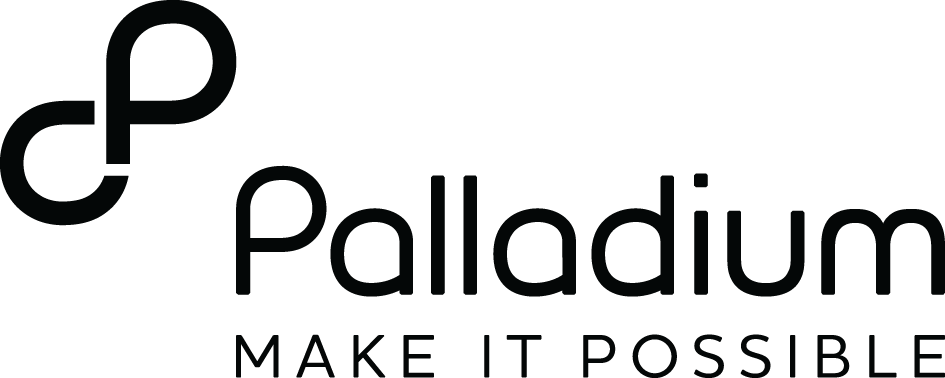HARVARD’S DR. ROBERT S. KAPLAN OUTLINES GROUND-BREAKING ROADMAP FOR BIG BUSINESS
Palladium’s Positive Impact Summit 2018, Reimagine Strategy, hosted over 200 leaders from business, civil society and academia.
- Dr Robert S. Kaplan – famous for developing the Balanced scorecard – warned inequality was on the rise in the US, UK and developing nations
- Speaking at the Palladium Positive Impact summit in London, Kaplan said “too many people have been left behind despite two centuries of market-based global capitalism that have made us healthier, wealthier and freer”
- He set out a roadmap for companies to move beyond traditional philanthropy and CSR to Positive Impact – the intentional creation of enduring social and economic value
London – March 15, 2018: Leading Harvard business academic Dr Robert S. Kaplan has warned major corporates to be bolder with their strategies for social and economic impact or risk a further rise in inequality and poverty across the world – and a decline in their profitability.
“Too many people have been left behind despite two centuries of market-based global capitalism that have made us healthier, wealthier and freer,” the Harvard Business School professor told more than 200 business leaders during a keynote speech at the annual Palladium Positive Impact summit in London.
Dr Kaplan, famous for developing the Balanced Scorecard performance framework, said the share of people living in extreme poverty has declined, but despite enormous increases in income and wealth, many have been left behind.
He set out Palladium’s roadmap for companies to move beyond traditional philanthropy and CSR to Positive Impact – the intentional creation of enduring social and economic value. He set out four critical steps to generate economic and social value at scale:
- Be Bold – Companies have tried to upgrade traditional CSR programmes, but all too often they have limited impact and very rarely produce transformational change.
- Think Collaboration – Companies need to partner with a ‘catalyst organisation’ to engage actors from multiple sectors to generate economic and social value.
- Unlock Capital – Investment funds favour safe projects. One solution is to find capital from organisations that already have a mission to create inclusive growth ecosystems
- Align and Govern – Building an ecosystem is not for the fainthearted. Shared metrics provide accountability and the foundation for governing this ecosystem.
“Inequality is on the rise in the US, UK and developing nations,” he added. “We’ve seen persistent inequality lead to the undermining of democratic institutions and capitalism, more broadly. Examples can be found in Argentina, Greece, the UK and perhaps most prominently, the US.
“Businesses have ranged in their responses to the emerging challenges: from operating under ‘business as usual’ to championing the role of the innovator to allow them to survive and proposer in the world’s changing environment.
“We posit that companies need to move beyond traditional philanthropy and even corporate social responsibility to Positive Impact—the intentional creation of enduring social and economic value.
“It’s not a simple strategy. We have to create new linkages between people and suppliers, local communities and companies.”
Kim Bredhauer, Chief Executive of global impact firm Palladium, said: “Our roadmap is ambitious but ultimately could be transformative in the way corporates engage with communities while still making a profit. Larry Fink’s (CEO of BlackRock) recent challenge to businesses to contribute to society or put at risk their long-term profitability is a timely call to action.
“We need to grasp the nettle now. For big business to add real social and economic value, they need to work through the four measurable steps or potentially lose their license to operate. Ultimately, Positive Impact is not only about doing good, it’s about doing well commercially. To do that, however, needs ambition, focus, and total commitment to the new strategy.”
The Summit was attended by senior representatives of some of the world’s leading companies such as Mars, Bayer, Barclays and MBC Group.
– ENDS –
Notes to Editor:
For Media enquiries, please contact:
Guy Smith or Jose Mendez at Redleaf Communications at gs@redleafpr.com or jm@redleafpr.com or +44 7850 771900 / +44 7884 134440
Dr Robert S. Kaplan
Senior Fellow, Marvin Bower Professor of Leadership Development, Emeritus at the Harvard Business School, is co-developer of both activity-based costing (ABC) and the Balanced Scorecard (BSC). Kaplan joined the HBS faculty in 1984 after spending 16 years on the faculty of the business school at Carnegie-Mellon University, where he served as Dean from 1977 to 1983.
Palladium
Palladium is a global leader in the design, development and delivery of Positive Impact— the intentional creation of enduring social and economic value. The consultancy works with corporations, governments, foundations, investors, communities and civil society to formulate strategies and implement solutions that generate lasting social, environmental and financial benefits.
For the past 50 years, it has been making Positive Impact possible. With a team of more than 2,500 employees operating in 90 plus countries and a global network of over 35,000 technical experts, Palladium has improved—and is committed to continuing to improve—businesses, economies, societies and most importantly people’s lives.

